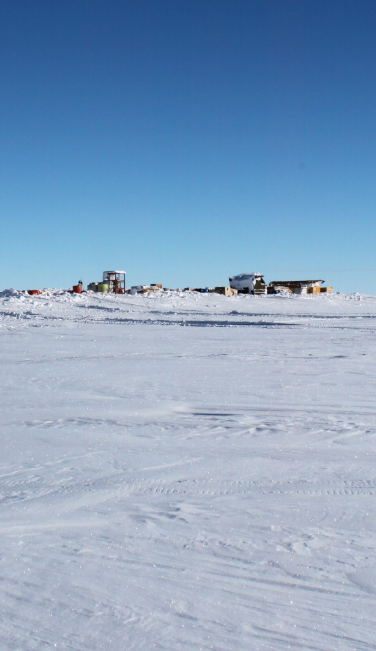Antarctic issues uncovered
 Australians working in Antarctica report a widespread and predatory culture of sexual harassment and displays.
Australians working in Antarctica report a widespread and predatory culture of sexual harassment and displays.
A report into the culture at Australia's Antarctic research stations, commissioned by the Australian Antarctic Division (AAD), has detailed some highly offensive behaviours.
The report says “participants observed that women experience a range of harassment including uninvited physical contact or gestures, unwelcome requests for sex, sexual comments, jokes or innuendo, intrusive questions, displays of offensive or pornographic material and sex-based insults or taunts and unwanted invitations”.
“Participants also described a homophobic culture on stations.”
Women working at the remote stations report having to their periods while on field missions out of fear they would be judged as incompetent.
Others had to improvise products when tampons were not available.
Female Antarctic staff “go to great lengths to make their menstruation invisible because menstruation is not considered to be an important operational concern in Antarctic fieldwork arrangements”, according to the report.
“They change their menstrual products without privacy or adequate sanitation; carry bloody menstrual products around with them in the field for long periods of time; improvise menstrual products when none are available; keep menstrual products in their bodies for longer than recommended because they are not provided with adequate toilet stops,” the report said.
“Whilst women in this study found a range of ways to individually cope, the more concerning issue is that people who menstruate feel compelled to uphold a male-dominated field culture in which menstruation is concealed and controlled to meet masculine cultural norms.”
Professor Meredith Nash, who wrote the report, said some women said it would be unethical to continue sending women to the Antarctic stations until their safety can be assured.
“I think on some level, it is unethical for us to continue trying to encourage women to enter a male-dominated field if we are not confident that organisations can keep them safe,” Professor Nash says.
She said women “have to work in the field with their abusers for weeks at a time because they simply can't leave”.
“Or, because of the power dynamics, they are not in a position to make a complaint or get support immediately as they would do back home.”
Environment Minister Tanya Plibersek has demanded cultural change.
“As a minister, I take a zero-tolerance response to sexual harassment in any workplace I am responsible for,” Ms Plibersek said.
“I was actually gobsmacked to read some of the reports here talking about pornographic material up on the walls … I really did think that we had eradicated this thing from Australians decades ago.
“I have been very clear with the department. We need to make sure that every person working either at head office or in the Antarctic feels safe and if they make a complaint, they can make that complaint without any fear of victimisation.
“I hope the report will be a catalyst for further change.”
The director of the Australian Antarctic Division, Kim Ellis, says behaviours need to improve.
“I am deeply concerned by the experiences it describes at our workplaces where people have been sexually harassed, discriminated against and excluded,” he said.
“It doesn't matter how many people may have experienced this behaviour - we know that under-reporting is almost certainly a factor - the fact that anyone at all experiences this treatment is not OK.”
The report made 42 recommendations for cultural change at the stations, including the creation of an “equity and inclusion task force”.
The AAD says it accepts all of the recommendations, and has begun work on implementing several.








 Print
Print